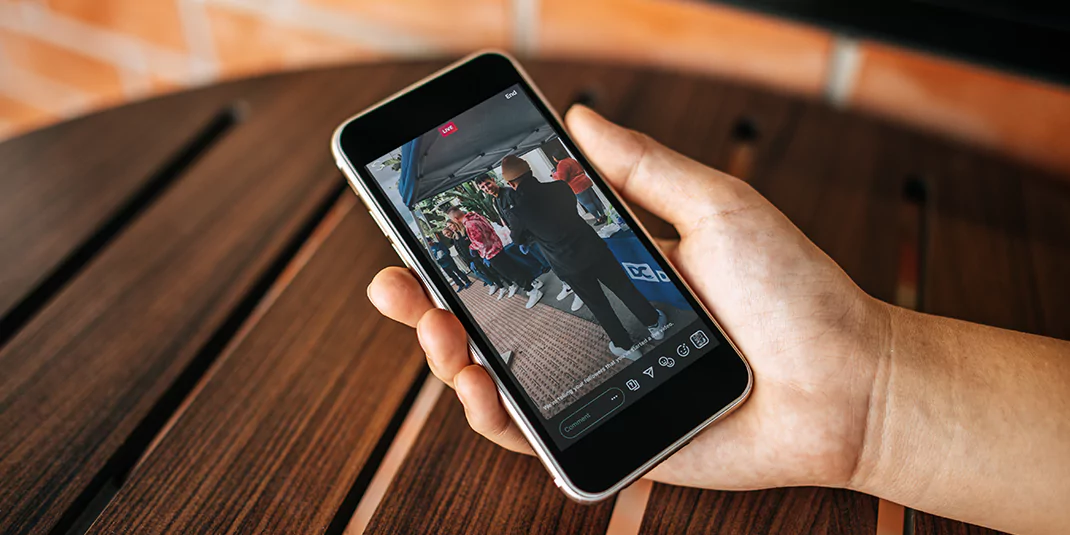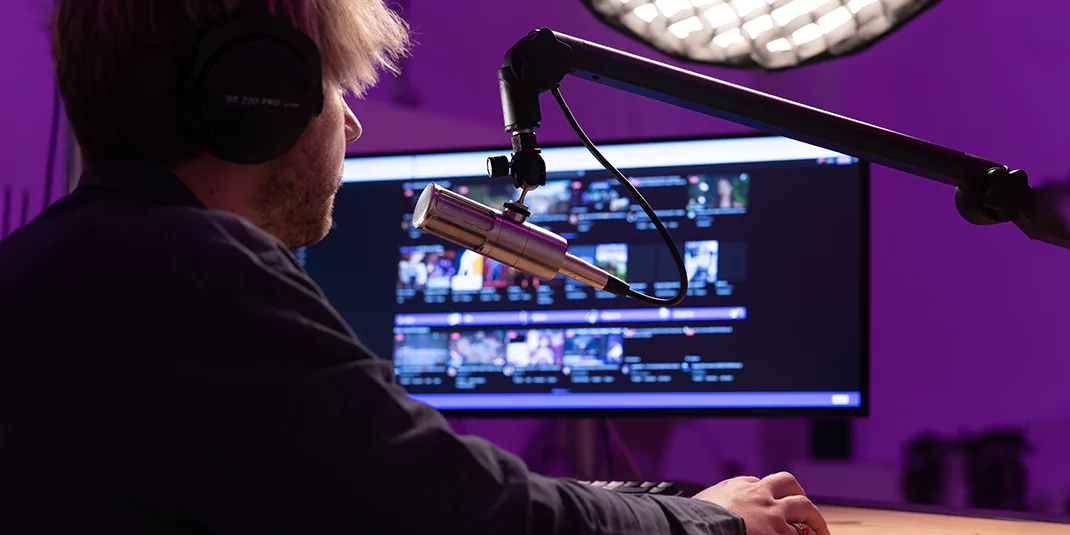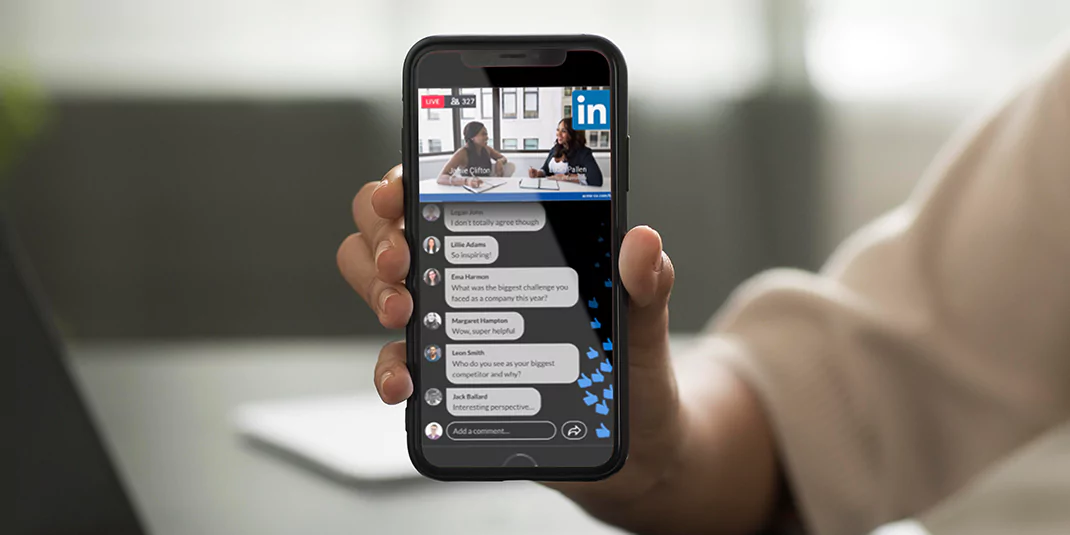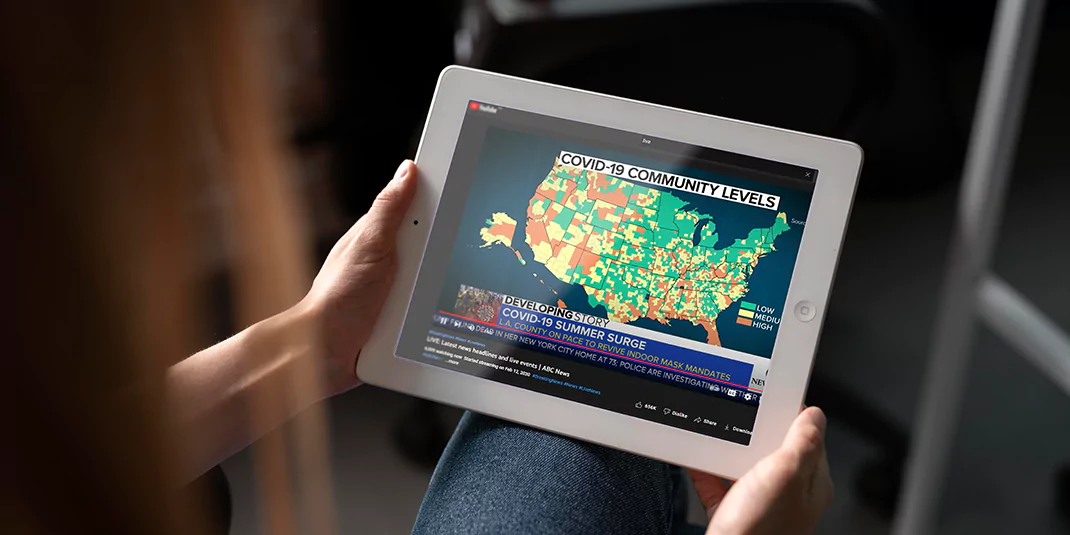The global live streaming market has seen explosive growth in recent years. And although it has been around for decades, the pandemic is the main reason for its success. As social distancing requirements hindered physical interactions, live streams gave the audience a chance to connect virtually. The rippling effects of its growth can be seen not only throughout the entertainment industry but in other sectors as well.
Streamers should be conscious of the components involved in determining the quality of their streams. One such component is internet speed. Today, live streaming is not limited to a specific platform, and different platforms require different internet speeds. Therefore, we’ll discuss everything streamers must know about internet speeds for streaming.
The Basics of Live Streaming
Live streaming mainly depends on upload speeds more than download speeds. So, your main question might be about the minimum required upload speed for successful streaming. But before that, let’s discuss the basics of internet speed for live streaming.
Bandwidth
Bandwidth is the capacity of a network to transfer data. It is a measure of the maximum volume of information you can send or receive in a specific amount of time. Although it is often mistaken for internet speed, it is entirely different from it.
Bandwidth depends on several factors, but video resolution and bitrate are the most important ones for streaming. A high-resolution and high-traffic stream consumes extra bandwidth. Therefore, you should be familiar with your internet connection’s bandwidth as it can affect the quality of your streams.
Upload Speed
Live streaming mainly consumes your upload speed since it involves uploading a massive amount of data to the internet. Therefore your upload speed is more critical than your download speed for live streaming. However, download speeds are not entirely insignificant as your other activities like gaming depend on them during streaming.
Broadcasters should choose an internet plan with ample upload speeds. But most connection types come with much slower upload speeds than download speeds, and many ISPs don’t advertise the former. You can use a speed test to judge whether your current network has sufficient internet speed for streaming.
Bitrate
Bitrate is another significant factor associated with streaming. Since raw videos are too heavy to upload, they are encoded to a suitable size and format. Bitrate is the number of bits transferred from one location to another over a specific time.
Bitrate for streaming is usually measured in Kbps and determines the quality of the stream. The higher the bitrate, the higher the quality of your stream.
Video Resolution
Video resolution helps you determine the amount of detail in your video or how clear it appears. It is the number of pixels forming the video frame, and the higher they are, the clearer the quality of the video. Since higher resolution streams consume additional bandwidth, it is necessary to have high-speed internet. Hence, your video resolution determines the upload speeds.
What is an Optimal Internet Speed for Live Streaming?
Internet speed determines the quality of your stream. High-speed internet is essential for an excellent streaming experience, especially while using other apps and assets during your live stream. On the other hand, a slow internet connection results in a laggy stream and choppy audio, which can lead you to lose your viewers. So, what is a good internet speed for live streaming?
Good Upload Speed for Live Streaming
Upload speed depends on your stream’s resolution and frame rate. A high-resolution stream requires a high upload speed. Therefore, 10 Mbps is a good upload internet speed needed for streaming, giving you enough space to handle upload speed fluctuations. However, we recommend a 15 Mbps upload speed for a better quality of your streams.Here are the recommended upload speeds for different platforms.

You can use up to 1080p resolution while live streaming on Facebook. The platform allows a maximum video length of 8 hours. The recommended minimum range for upload speed on this platform is 3 to 7 Mbps. For a high-quality stream, it is best to have higher upload speeds. You can find this information on Meta’s website. Here are the recommended upload speeds for different resolutions.
| Resolution | Frame Rate | Bitrate | Minimum Upload Speed |
|---|---|---|---|
| 1080p | 60 fps | 4,500 – 9,000 Kbps | 7 Mbps |
| 1080p | 30 fps | 3,000 – 6,000 Kbps | 6 Mbps |
| 720p | 60 fps | 2,250 – 6,000 Kbps | 5 Mbps |
| 720p | 30 fps | 400 – 1000 Kbps | 3 Mbps |
Twitch

Twitch requires minimum upload speeds ranging from 3 to 7 Mbps. You can find all the specifications on Twitch’s website. Here is a breakdown of the different speed requirements for live streaming on Twitch.
| Resolution | Frame Rate | Bitrate | Minimum Upload Speed |
|---|---|---|---|
| 1080p | 60 fps | 6,000 Kbps | 6-7 Mbps |
| 1080p | 30 fps | 4,500 Kbps | 4.5 – 8 Mbps |
| 720p | 60 fps | 4,500 Kbps | 4.5 – 8 Mbps |
| 720p | 30 fps | 3,000 Kbps | 3 – 5 Mbps |
LinkedIn Live

The recommended minimum upload speeds for LinkedIn range from 3 Mbps to 10 Mbps. Unlike other platforms, LinkedIn only allows certain members and pages to go live. It doesn’t have a live video function for every member and only grants access to the members who meet specific criteria. Plus, a third-party tool is required to live stream on LinkedIn. Here are the recommended speeds for different resolutions.
| Resolution | Frame Rate | Bitrate | Minimum Upload Speed |
|---|---|---|---|
| 1080p | 60 fps | 6,000 Kbps | 5 – 10 Mbps |
| 720p | 30 fps | 3,500 Kbps | 3 – 7 Mbps |
YouTube

YouTube has a wide variety of resolution options. Hence, its recommended upload speeds vary greatly and range from 2 Mbps to 61 Mbps. It allows you to stream as low as 240p or as high as 4K resolution. All the specifications are available on the YouTube Help page.. Here is a breakdown of the different speed requirements for live streaming on YouTube.
| Resolution | Frame Rate | Bitrate | Minimum Upload Speed |
|---|---|---|---|
| 4K | 60 fps | 20,000–51,000 Kbps | 24 – 61 Mbps |
| 4K | 30 fps | 13,000–34,000 Kbps | 15.8 – 41 Mbps |
| 1440p | 60 fps | 9,000–18,000 Kbps | 11 – 21.8 Mbps |
| 1440p | 30 fps | 6,000–13,000 Kbps | 7.4 – 15.8 Mbps |
| 1080p | 60 fps | 4,500–9,000 Kbps | 5.6 – 11 Mbps |
| 1080p | 30 fps | 3,000–6,000 Kbps | 3.8 – 7.4 Mbps |
| 720p | 60 fps | 2,250–6,000 Kbps | 2.9 – 7.4 Mbps |
| 720p | 30 fps | 1,500–4,000 Kbps | 2 – 5 Mbps |
Good Download Speed for Live Streaming
Upload speed is vital for live streaming. However, download speeds also play a crucial role in performing other activities during live streams. Generally, a 25 Mbps internet plan is sufficient to handle most activities like gaming during broadcasting. However, if you share your home internet with other people and have multiple devices connected competing for the bandwidth, you’ll need to upgrade to a high-speed internet plan. Here is a breakdown of minimum download speeds with different resolutions.
| Resolution | Minimum Download Speed |
|---|---|
| 1080p | 25 Mbps |
| 720p | 10 Mbps |
| 480p | 5 Mbps |
Conclusion
Understanding the role of internet speeds can help you optimize the quality of your live streams. As different platforms have different specifications, they require different internet speeds. Also, remember that several factors like your connection type, online activities, number of devices, and distance from the router can affect your internet speed. Therefore you should understand your speed requirements and choose the best internet provider that offers a plan with good upload speeds.
J.Soofi
Related posts
Best Satellite Internet for RV in 2024
Check Internet Availability
